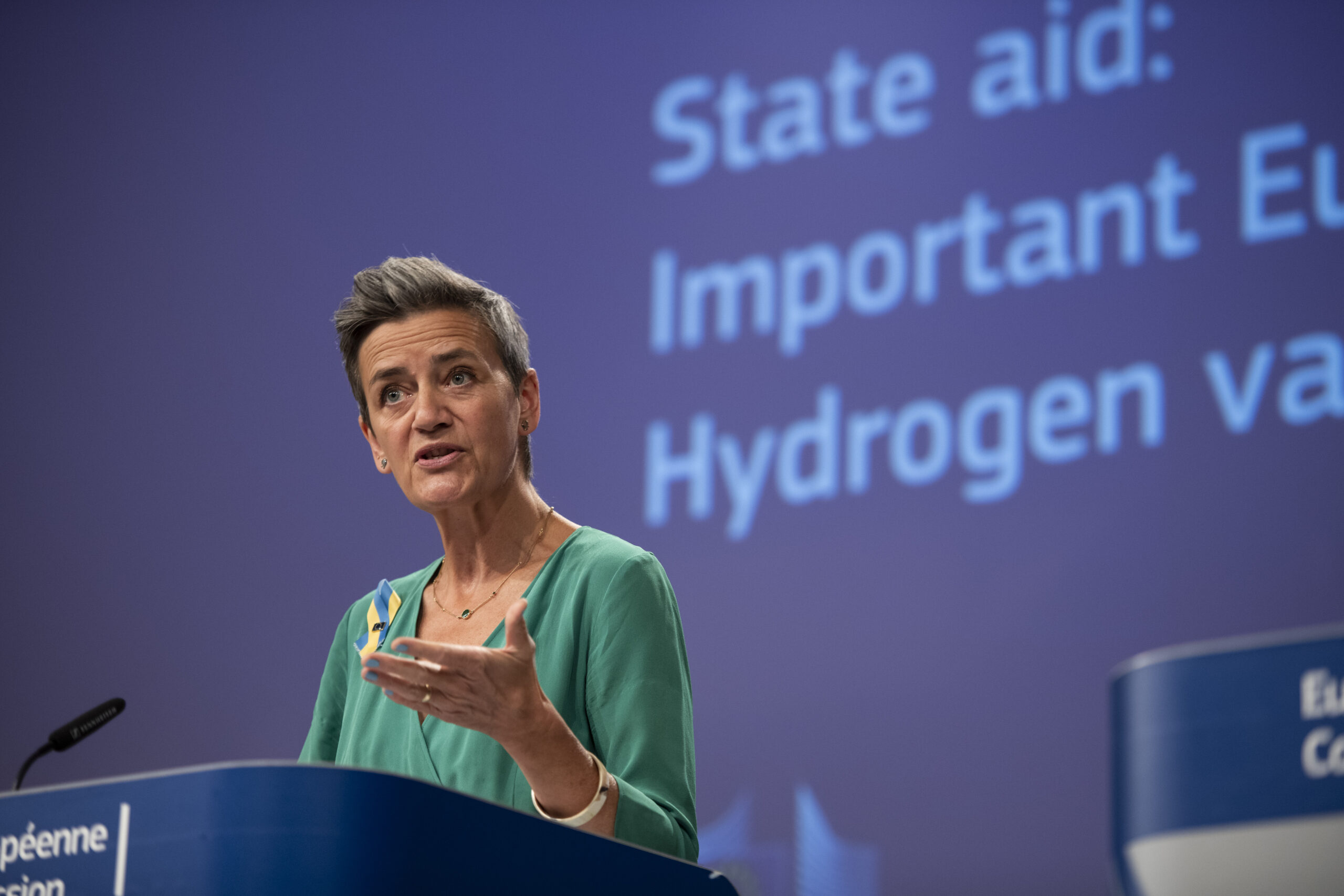Green industry, what the new EU rules on subsidies provide. Fresh water compared to Biden’s Wrath

The European Commission has relaxed rules on state subsidies to green industry in response to US wrath. All the details
The game on subsidies between the European Union and the United States is in full swing.
On Thursday 9 March, the European Commission adopted a new regulation which loosens the Community legislation on state aid to so-called "clean technologies", i.e. useful for the energy transition, to respond to US and Chinese incentives.
WHAT THE TEMPORARY FRAMEWORK FOR CRISIS AND TRANSITION INVOLVES
The regulation – known as the Temporary Crisis and Transition Framework – extends to 31 December 2025 the possibility for EU member countries to subsidize sectors crucial to the decarbonisation process.
National governments will therefore be able to support investments in the "manufacturing of strategic devices" (batteries, solar panels, wind turbines, heat pumps, hydrogen electrolysers and CO2 capture and storage systems), in the production of "key components" necessary for finished products and in the "production and recycling of related critical raw materials", such as lithium and rare earths.
EXTRAORDINARY SUBSIDIES FOR EXCEPTIONAL CASES
In some "exceptional cases", states the document, member countries will be able to "provide higher support to individual companies, if there is a real risk that investments will be diverted outside Europe": many companies are actually considering – in some cases have already decided – to focus on the United States, in order to access the tax credits of the Inflation Reduction Act, the 369 billion dollar US green industry support law.
In the cases described above, national governments will be able to provide companies with "the amount of support that the beneficiary could receive for an equivalent investment in that alternative location" to the European Union (we speak of "matching aid", or matching-aid ) . Or, the text continues, they will be able to assign “the amount necessary to incentivize the company to locate the investment in the European economic area (the so-called 'funding gap'), depending on which is the lowest”.
THE WORDS OF VESTAGER
"The Framework we have adopted," said the liberal-minded Competition Commissioner Margrethe Vestager, "gives member states the option to provide state aid in a fast, clear and predictable manner."
The European Commission specifies that it does not want to run a subsidy race with the United States and China, but wants to prevent companies from moving to North America or Asia, attracted not only by the incentives but also by lower energy prices.
– Read also: Here is the EU plan (without an extra euro) against Biden's wrath
VON DER LEYEN IN WASHINGTON
Today the President of the Commission, Ursula von der Leyen, will meet in Washington with President Joe Biden: the two will discuss, among other things, the trade tensions created by the Inflation Reduction Act, which – so Brussels thinks – accentuates the imbalance competitive between Europe and America.
The European Union is considering negotiating a trade agreement with the United States, which would allow it to enjoy the same treatment reserved for Canada and Mexico: in fact, the White House is not only encouraging reshoring , i.e. the return of critical manufacturing to its homeland, but also near-shoring , i.e. the installation of capacity in the rest of North America to reduce dependence on distant Asia.
WHO DOESN'T LIKE THE RELEASE OF STATE AID
The European Union's policy for the net-zero industry appeals above all to France, which has both resources to spend, and will therefore be able to benefit from the relaxation of the rules on state aid, and ambitions of strategic sovereignty.
However, other member countries, including Italy , do not like the idea of greater reliance on state aid: they fear that this approach will favor nations with large financial resources – France, indeed, but above all Germany – and it will put all the others at a competitive disadvantage within the single market itself. Of the €672 billion in state aid the Commission approved in 2022 (the regime had been relaxed to deal with the aftermath of the war in Ukraine), Germany accounted for 53 per cent of the total and France 24 per cent; Italy, in third place, was worth only 7 percent.
Other countries, such as Denmark, Estonia and Finland, are concerned about the possibility of a proliferation of subsidies, arguing that it would damage the traditional economic openness of the European Union.
To try to reassure the most skeptical states, Commissioner Vestager reiterated that the new rules on public aid are "proportionate, targeted and temporary".
This is a machine translation from Italian language of a post published on Start Magazine at the URL https://www.startmag.it/energia/unione-europea-sussidi-industria-net-zero/ on Fri, 10 Mar 2023 10:06:36 +0000.
